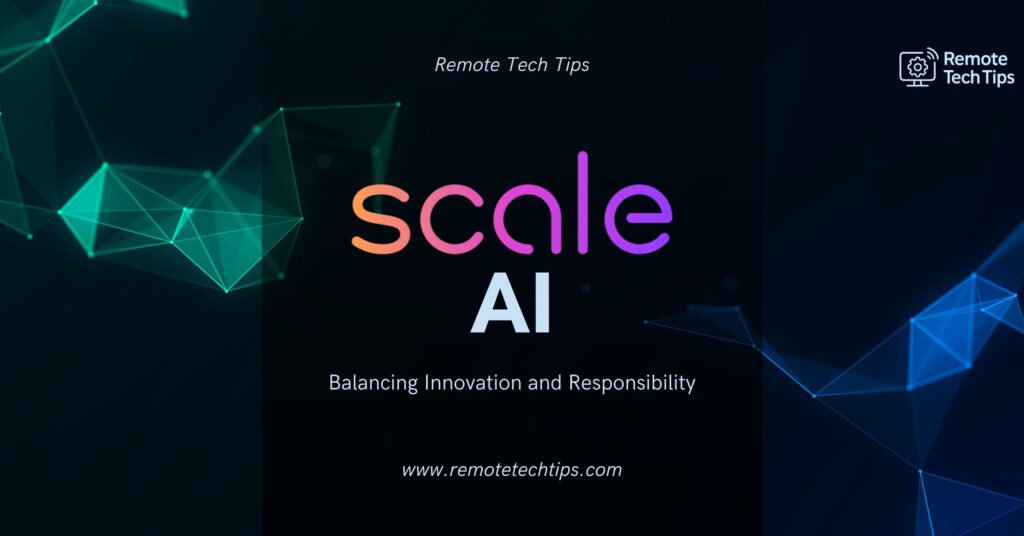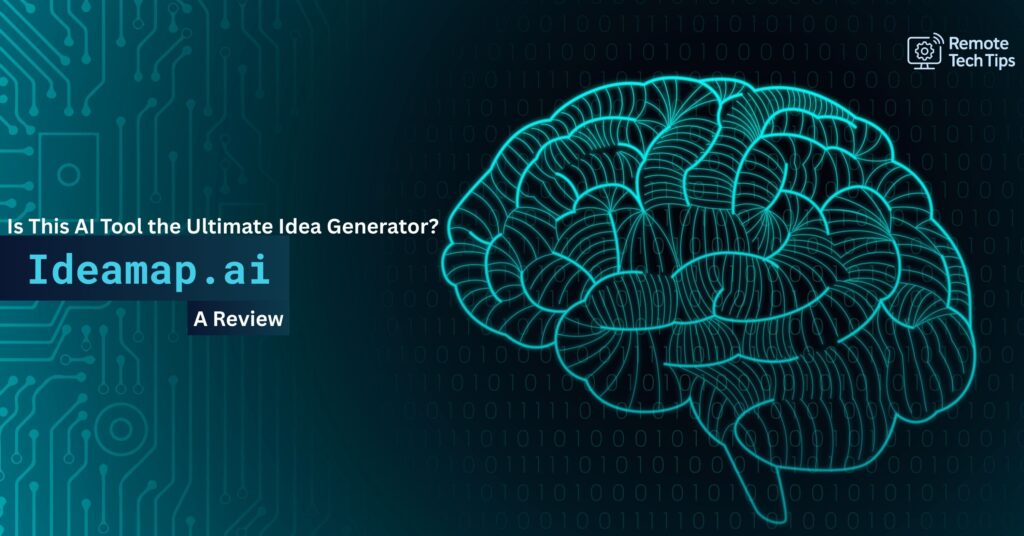Artificial Intelligence is transforming the modern world, and behind every intelligent system lies a massive pool of high-quality data. One company at the forefront of powering this transformation is Scale AI—a company that has become essential for organizations developing advanced AI systems.
This article explores what Scale AI is, what the company does, who its founder is, and how figures like Lucy Guo are connected to its story. We’ll also break down Scale AI’s impact on industries, government contracts, and the future of artificial intelligence.
What is Scale AI?

Scale AI is a San Francisco-based technology company that provides data infrastructure for artificial intelligence. It specializes in helping companies and organizations build and deploy AI systems by delivering high-quality labeled data for machine learning (ML) models.
Founded in 2016, Scale AI has quickly become one of the most important companies in the machine learning and data operations space. The company supports a range of use cases—from self-driving vehicles to large language models (LLMs)—by offering scalable solutions for data annotation, validation, and evaluation.
Mission and Vision
The mission of Scale AI is to “accelerate the development of AI applications” by enabling better data quality, faster labeling processes, and seamless integration between data and models. In essence, it acts as the data backbone for companies aiming to build production-grade AI.
What Does Scale AI Do?
At its core, Scale AI provides tools and services that transform raw, unstructured data into labeled data sets suitable for training machine learning models. Here’s a closer look at what Scale AI actually does:
1. Data Labeling and Annotation
Scale AI offers a suite of services that help annotate text, images, video, LiDAR, and more. Annotation includes identifying and tagging elements in a dataset—such as identifying objects in a photo or tagging sentiment in a customer review.
Their platform supports use cases such as:
- Computer Vision: Bounding boxes, semantic segmentation, 3D LiDAR annotations for self-driving car data.
- Natural Language Processing (NLP): Sentiment analysis, named entity recognition, intent classification.
- Document Processing: Extracting structured information from unstructured documents.
2. Model Evaluation and Reinforcement Learning
For AI to be effective in real-world scenarios, it needs constant evaluation and tuning. Scale AI helps with:
- Human-in-the-loop model evaluation.
- Reinforcement learning with human feedback (RLHF), especially for LLMs.
- Red teaming and adversarial testing to assess model robustness.
These services are particularly relevant for organizations working on generative AI products.
3. Synthetic Data Generation
In areas where real-world data is scarce or sensitive, Scale AI provides synthetic data tools that simulate realistic scenarios. This is helpful for industries like robotics, defense, and autonomous driving.
4. Government and Defense Solutions
Scale AI has been an emerging player in working with the U.S. government. Its services are used to support military AI systems, intelligence analysis, and simulation environments. In 2023, Scale was selected as one of the vendors for Task Force Lima, a Pentagon initiative focused on safe and responsible use of large language models in defense.
5. Foundation Model Evaluation
Scale AI also helps evaluate large language models across dimensions like bias, toxicity, and factual accuracy. This is crucial for ensuring that AI models are safe, fair, and aligned with human values.
Who Founded Scale AI?
The founder and CEO of Scale AI is Alexandr Wang, a visionary entrepreneur who dropped out of MIT at age 19 to start the company.
Who is Alexandr Wang?
- Background: Alexandr Wang is a math and computer science prodigy. Born to two physicists, he showed early aptitude in competitive programming and mathematics.
- Education: He attended MIT but left after one year to focus on building Scale AI.
- Startup Journey: Wang launched Scale AI in 2016 at age 19 while participating in the startup accelerator Y Combinator.
- Recognition: In 2022, he was featured on Forbes’ “30 Under 30” and Bloomberg’s list of self-made billionaires. He became one of the youngest billionaires in the world.

Alexandr Wang’s vision for Scale AI was based on a simple but powerful insight: machine learning models are only as good as the data they’re trained on. With the rapid growth of AI, there was a clear need for high-quality, human-labeled data at scale—hence the name of the company.
Who is Lucy Guo and What’s Her Connection?
While Alexandr Wang is the sole founder of Scale AI, Lucy Guo has often been mentioned in discussions about the company because of her prior collaborations and early contributions in Silicon Valley.
Background on Lucy Guo
- Education: Lucy Guo also attended Carnegie Mellon University but dropped out to join Y Combinator and work in Silicon Valley.
- Tech Career: She was a founding designer at Snapchat and later worked at Quora and Scale AI during its early stages.
- Co-Founder of Scale AI?: There has been confusion over whether Lucy Guo is a co-founder of Scale AI. Officially, she is not listed as a co-founder, but she was an early team member and instrumental in helping shape the company’s direction in its infancy.
- Later Ventures: Lucy went on to co-found Backend Capital and Passes, a creator monetization platform backed by prominent VCs.

While Lucy Guo didn’t stay at Scale AI long-term, her design expertise and early influence helped the startup establish its initial product and brand. She is a notable figure in the broader AI startup ecosystem, frequently investing in and advising tech founders.
How Scale AI Is Shaping the Future of Artificial Intelligence
Scale AI is not just another data company. It’s playing a foundational role in the AI revolution by enabling enterprises, governments, and researchers to train, validate, and deploy AI models more effectively.
Here’s how it’s making a difference:
1. Accelerating Autonomous Vehicles
Scale AI’s LiDAR and video annotation tools are crucial for training the computer vision systems used in self-driving cars. Companies like Waymo, Cruise, and Toyota have used Scale’s services to improve safety and perception accuracy.
2. Powering Generative AI Models
As generative models like ChatGPT, Claude, and Bard emerge, companies building competitive LLMs rely on Scale AI for training data, RLHF loops, and fine-tuning.
3. Supporting National Security
Scale AI has built secure platforms to help government agencies and military organizations integrate AI responsibly. From battlefield simulations to language model audits, the company is playing a growing role in defense tech.
4. Enterprise Adoption of AI
Scale AI helps large enterprises integrate AI into workflows, whether it’s automating document review in finance or analyzing satellite imagery in agriculture. It is becoming the “Intel Inside” of enterprise AI—powering the core data infrastructure without being front-facing.
👉 Curious about AI tools for brainstorming and planning? Check out our in-depth review of Ideamap AI.
Competitors and Market Position
Scale AI operates in a highly competitive but niche market. Its competitors include:
- Labelbox: Focused on data annotation tools.
- Appen: Uses crowdsourced workers for data labeling.
- Snorkel AI: Focuses on programmatic labeling with weak supervision.
- Amazon SageMaker Ground Truth: Amazon’s own data labeling platform.
Despite competition, Scale has differentiated itself by:
- Offering both automation and human-in-the-loop workflows.
- Handling complex, multi-modal datasets.
- Working with high-profile clients including OpenAI, Meta, and the U.S. government.
Funding and Valuation
Scale AI has raised significant venture capital over the years:
- Y Combinator: Part of the Winter 2016 batch.
- Index Ventures, Founders Fund, Accel, and other prominent VCs have invested.
- In 2021, the company reached a valuation of $7.3 billion during its Series E funding round.
As of 2025, it is considered one of the most important private companies in the AI infrastructure space.
Challenges Ahead
Despite its growth, Scale AI faces challenges:
- Data Privacy: Handling sensitive data, especially for defense and medical clients, requires strict compliance.
- Model Alignment: As AI systems become more autonomous, ensuring safe model behavior is a growing concern.
- Global Regulation: Governments are increasingly regulating AI, and data companies like Scale will need to navigate complex legal environments.
However, with a strong leadership team and continued innovation, Scale AI is well-positioned to adapt.
Final Thoughts
Scale AI is one of the most important enablers of modern artificial intelligence. From autonomous vehicles to language models, it provides the critical data infrastructure that powers innovation. With Alexandr Wang’s technical vision and a talented team behind it, the company is redefining how data is used to shape the future.
While Lucy Guo is no longer part of Scale AI’s core story, her role in the early days reflects how fast-moving and interconnected the world of AI startups can be. Both Wang and Guo represent the new generation of builders and thinkers shaping the AI age.
Whether you’re a business leader, technologist, or just curious about the future of AI, understanding what Scale AI does gives you insight into where the industry is headed—and who’s behind the wheel.
FAQs
Q1: What is Scale AI used for?
A: Scale AI is used to provide high-quality labeled data for training machine learning and AI models. Companies use its platform to annotate text, images, videos, LiDAR data, and more for applications in autonomous driving, natural language processing, computer vision, and defense.
Q2: Who is the founder of Scale AI?
A: Scale AI was founded by Alexandr Wang in 2016. He launched the company at age 19 after dropping out of MIT and participating in Y Combinator’s startup accelerator program.
Q3: What industries use Scale AI?
A: Scale AI serves a wide range of industries, including:
Agriculture, Autonomous vehicles, Government and defense, E-commerce, Robotics, Finance, Healthcare. These organizations use Scale AI to improve the accuracy and performance of their AI systems.
Q4: Is Lucy Guo a co-founder of Scale AI?
A: No, Lucy Guo is not officially listed as a co-founder of Scale AI. However, she was an early contributor during the company’s early stages and played a role in shaping its initial design and strategy.
Q5: How does Scale AI make money?
A: Scale AI makes money by offering data labeling, model evaluation, and synthetic data services to enterprise and government clients. It charges for data volume, complexity, and additional services like reinforcement learning feedback and AI red teaming.
Q6: Is Scale AI a public company?
A: As of 2025, Scale AI is still a private company. It has raised several rounds of venture capital and is considered one of the most valuable private companies in the AI infrastructure space.


